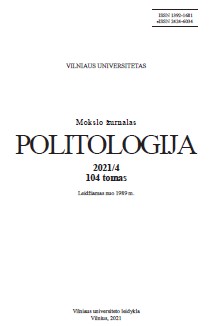Immanuelio Kanto iššūkis politikos mokslui
Immanuel Kant’s Challenge to Political Science
Author(s): Alvydas Jokūbaitis, Linas JokubaitisSubject(s): Ethics / Practical Philosophy, Political Philosophy, Early Modern Philosophy, German Idealism, History and theory of political science
Published by: Vilniaus Universiteto Leidykla
Keywords: Kant; political science; politics; morality; practical reason;
Summary/Abstract: The aim of the paper is to prove the incompatibility of Kantian philosophy with empirical political science. The nonexistence of such a science in Kant’s structure of reason is not a coincidence that was determined by historical contingencies, it is a necessary position of his teaching. The domination of morality in Kant’s conception of practical reason does not leave any room for empirical science of politics. Firstly, introduction of methods borrowed from the natural sciences would lead to the demoralization of politics. Secondly, empirical science of politics deforms our understanding of politics. Thirdly, when politics is divorced from morality it loses its ontological foundation. Empirical science of politics that only attempts to investigate facts is incapable of understanding the role of ideas and for this reason does not distinguish between empirical and conceptual factors. Such a science does not recognize the human person as a free subject of morality and sees him as a consequence of external factors. Finally, political science that is divorced from morals deforms understanding of practical reason.
Journal: Politologija
- Issue Year: 2021
- Issue No: 4(104)
- Page Range: 8-31
- Page Count: 24
- Language: Lithuanian

